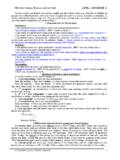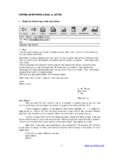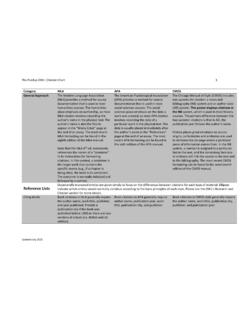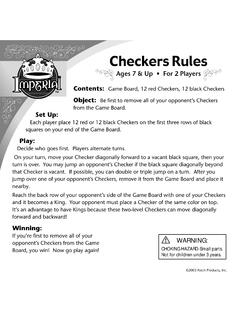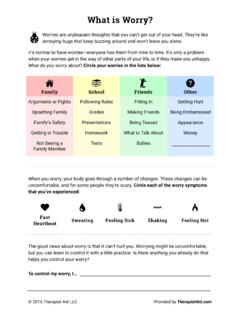Transcription of FOOD and DIET Intermediate level Types of food
1 food and diet Intermediate level Types of food Fast food : food that is already cooked and prepared and all we do is buy it and eat it. Example of a fast food chain: McDonald s. Junk food : food that is not very healthy and is always easy to prepare so that you can eat it immediately. Take-away food : food that you buy at a shop or restaurant to eat in another place. GM (genetically modified) food or Frankenstein food : food that has been produced by a method that involves changing the structure of its genes. Processed food : food that has been especially treated before it is sold, to make it look more attractive or last longer. Fattening: food that makes you put on weight. Fatty: with a lot of fat. Spicy: food with a strong flavour, often from a spice ( paprika) Fresh: food recently picked, not old. Wholemeal: food made from unrefined flour. Frozen: food kept below 0 C. Tinned: food kept in a tin or can. Ways of cooking food Flavours and tastes adjectives and opposites hot, spicy mild sweet bitter salty (a lot of salt) - sugary (a lot of sugar) tasty (has a good taste) - tasteless (no flavour at all) Condiments oil pepper salt vinegar mustard spice ketchup spices: curry, cinnamon, herbs: parsley, rosemary, oregano, diet Balanced/ healthy diet : a good mixture of healthy foods.
2 Unhealthy diet : a diet that is not balanced. Mediterranean diet : a diet that often includes monthly servings of meat and weekly meals of poultry, eggs and sweets. Vegetables, fruits, nuts, legumes, unrefined cereals, olive oil, cheese and yoghurt are eaten most days, as is fish. To diet / to go on a diet : to eat less in order to lose weight. To put on weight: to become fatter and heavier. To lose weight: to become thinner. To be overweight: to be too heavy and fat. To be underweight: not heavy enough physically. A vegetarian: sb who eats only vegetables, bread, fruit, and does not eat meat or fish. A vegan: sb who does not eat meat, fish, eggs, cheese, or milk. A vegetarian diet / A vegan diet . Eating To swallow to move food from the mouth to the stomach down your throat. To consume used especially in scientific contexts meaning to eat or drink sth. To overeat to regularly eat more than is healthy or necessary. Others Possible illnesses related to eating unhealthy food : heart attack, cancer, heart disease, food poisoning, vomiting, diarrhoea.
3 Protein: a substance that exists in food such as meat, fish, eggs, and pulses, which helps your body to grow and keep it strong and healthy. Carbohydrate: a substance that exists in food such as rice, pasta, bread, and potatoes, which provides your body with heat and energy. Fat: an oily substance contained in certain foods like margarine and olive oil. Calorie/s: a unit for measuring the amount of energy that food will produce. Producer: a person or company that produces (grows or makes) food , things to sell to consumers. Consumer: a person who buys and uses what a producer sells. food and diet Intermediate level EXERCISES 1. Put the foods in the correct columns. apricots asparagus aubergines beans beef cod cream cherries lentils margarine mussels olive oil pasta rice turkey yoghurt MEAT FISH / SEAFOOD EGGS / MILK PRODUCTS PULSES FRUIT VEGETABLES CARBO- HYDRATES FATS 2. Complete the following sentences with the words below.
4 Breakfast carbohydrates chain consume dinner fast food Frankenstein fried genetically gravy on a diet overeat poisoning takeaway 1. A _____ modified fish can grow ten times faster than a normal fish. 2. Gm foods are sometimes nicknamed _____ Foods. 3. The British people tend to have a big _____ before they go to work. They tend to eat their evening meal or _____ between and 8 4. Many people like to have a _____ breakfast which can consist of fried bacon and eggs with fried bread and possibly fried tomatoes. 5. _____ is a sauce made with the juice that is obtained when the meat is cooked, and is used to cover the meat. 6. People who _____ large amounts of animal fats are more likely to get cancer and heart disease. 7. Many people who _____ do so for psychological reasons rather than from hunger. 8. She went _____ four weeks ago but she still looks fat. 9. If you eat too many bad _____ (white bread, pasta, ), your level of blood glucose goes up and then goes down.
5 10. The most famous British _____ is the fish and chip shop. 11. After the hamburger, the hot dog is the great American _____ invention. 12. The largest fast food _____ is McDonald s. 13. Bacteria are tiny living things (microorganisms) which cannot be seen by the human eye. Some bacteria cause food _____ . food and diet Intermediate level 3. Complete the sentences with a word from the box. draught full-bodied mild organic roast spicy strong wholemeal a) A lot of people in Britain are buying _____ food these days. b) I like a cup of _____ coffee first thing in the morning. c) In pubs in Britain, people usually drink _____ beer. d) In some countries, it s quite hard to find _____ bread. e) Mexican food is often very _____ . f) My favourite meal is _____ chicken and chips. g) Rioja is a _____ wine that goes well with red meat. h) Would you like to try this cheese? It s very _____ . food and diet Intermediate level Sources: Exercise 1: English File Intermediate .
6 Student s book, page 132. Exercise 3: Inside Out Workbook. Intermediate , page 62. Key: Exercise 1: Meat beef, turkey. Fish/ Seafood cod, mussels. Eggs/ milk products cream, yoghurt. Pulses beans, lentils. Fruit apricots, cherries. Vegetables asparagus, aubergines. Carbohydrates pasta, rice. Fats margarine, olive oil. Exercise 2: 1. genetically 2. Frankenstein 3. breakfast, dinner 4. fried 5. gravy 6. consume 7. overeat 8. on a diet 9. carbohydrates 10. takeaway 11. fast food 12. chain 13. poisoning Exercise 3: a) organic, b) strong, c) draught, d) wholemeal, e) spicy, f) roast, g) full-bodied, h) mild.
